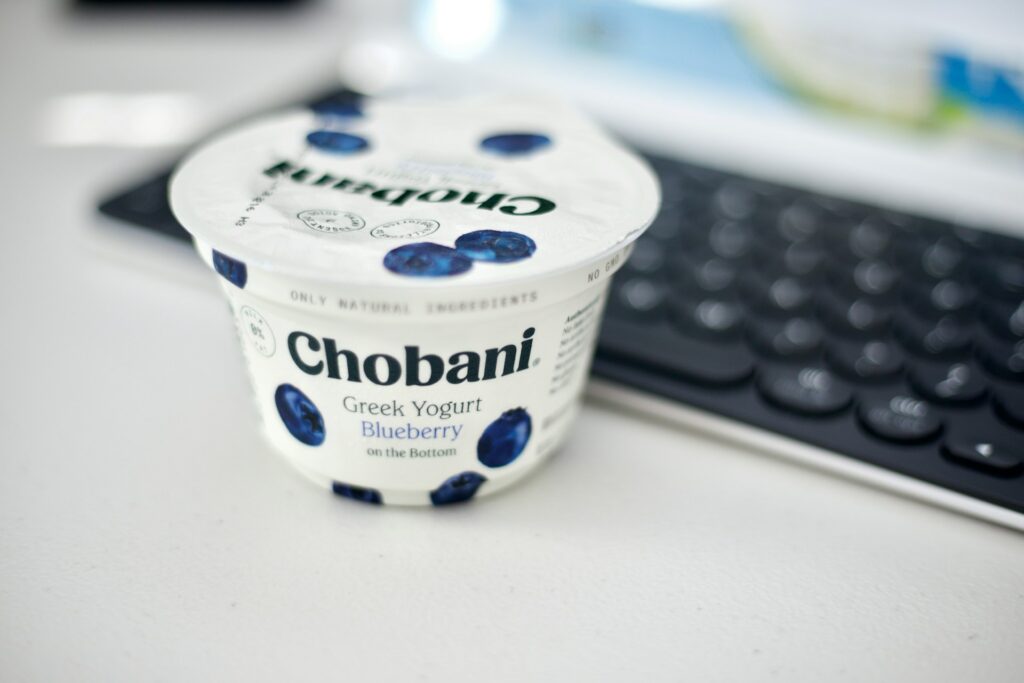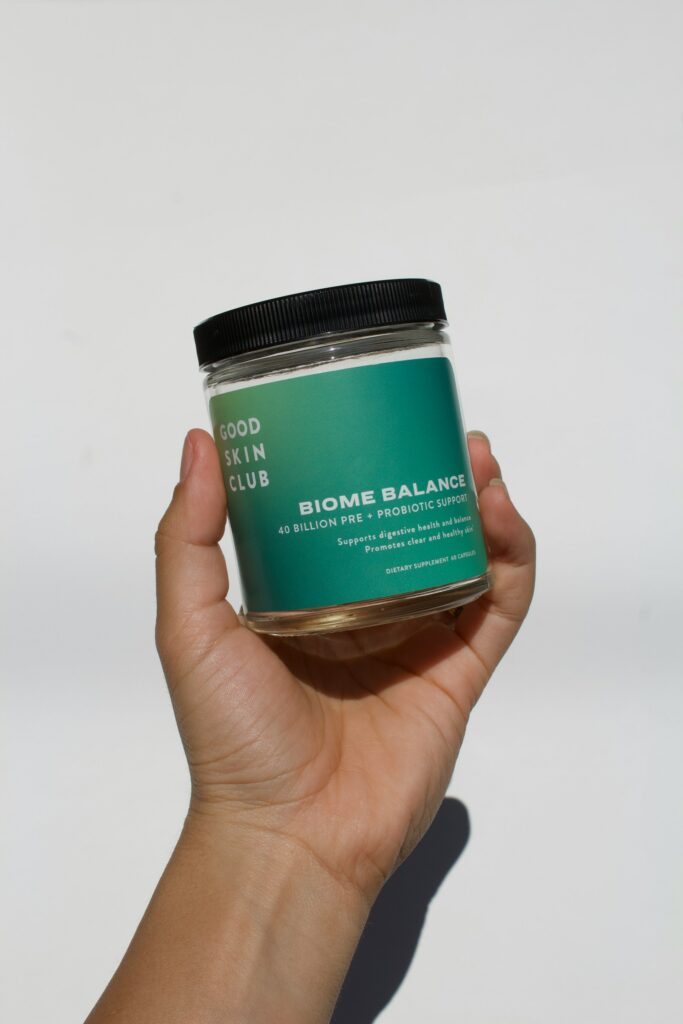The Ultimate Guide to Improving Gut Health

- Should You Train To Muscle Failure Every Set? What You Need To Know - March 4, 2025
- Nutrition in a Hurry: Top Post-Workout Snacks for Active People - February 20, 2025
- 15 Healthy Meal Prep Recipes: Your Weight Loss Made Easy - February 18, 2025
Welcome to “The Ultimate Guide to Improving Gut Health,” your go-to resource for understanding and enhancing your digestive well-being. In this friendly and informative guide, you’ll discover practical tips, scientific insights, and easy lifestyle changes that can dramatically boost your gut health. Whether you’re dealing with digestive discomfort or just looking to optimize your overall wellness, this guide is here to help you navigate the journey toward a happier, healthier gut. Let’s dive in and explore how you can take charge of your digestive health today! Have you ever wondered why gut health is such a hot topic these days? It seems like everyone’s talking about probiotics, fermented foods, and the gut-brain connection. The truth is, your gut health plays a crucial role in your overall well-being, from your mental health to your immune system. Let’s dive into “The Ultimate Guide to Improving Gut Health” and explore why it’s so important and how you can take steps to improve it.

What is Gut Health?
Gut health refers to the balance of microorganisms living in your digestive tract. Having a healthy gut means having the right balance of bacteria and other microbes. These microorganisms are vital for digesting food, absorbing nutrients, and keeping your immune system strong.
The Microbiome
The term microbiome refers to the community of microorganisms (bacteria, fungi, viruses, etc.) that inhabit a particular environment, including your gut. These microbes play a crucial role in various bodily functions, from digestion to mood regulation.
Why is Gut Health Important?
A healthy gut contributes to:
- Better digestion and nutrient absorption
- Stronger immune system
- Mental health and cognitive function
- Hormonal balance
- Skin health
Signs of Poor Gut Health
How do you know if your gut isn’t in tip-top shape? Some common signs include:
- Bloating, gas, and abdominal pain
- Constipation or diarrhea
- Chronic fatigue
- Food intolerances
- Anxiety and depression
- Skin issues, like acne or eczema
Factors Affecting Gut Health
Diet
What you eat has a significant impact on your gut health. A diet high in processed foods, sugar, and unhealthy fats can disrupt the balance of bacteria in your gut. On the other hand, a diet rich in fiber, whole grains, fruits, and vegetables supports a healthy microbiome.
Here’s a quick comparison:
| Unhealthy Diet | Healthy Diet |
|---|---|
| Processed foods | Whole foods |
| High sugar intake | Low sugar intake |
| Unhealthy fats | Healthy fats (e.g., olive oil, avocados) |
| Low fiber intake | High fiber intake |
Stress
Chronic stress negatively impacts your gut by altering your gut bacteria and causing inflammation. Practices like meditation, exercise, and proper sleep can significantly improve your gut health.
Antibiotics
While antibiotics can save lives, they also kill good bacteria along with the bad, leading to an imbalanced microbiome. If you’ve recently taken antibiotics, consider consuming probiotics to help restore balance.
Lifestyle Choices
Lack of exercise, poor sleep, and exposure to toxins (like smoking or excessive alcohol) can all harm your gut health. Making positive lifestyle changes can go a long way in supporting a healthy gut.
Steps to Improve Gut Health
So, what can you do to improve your gut health? Here are some actionable steps:
Eat a Diverse Range of Foods
Eating a variety of foods can lead to a diverse microbiome, which is beneficial for overall health. Different bacteria thrive on different food types, so the more varied your diet, the more diverse your gut bacteria will be.
Include Fermented Foods

Fermented foods are rich in probiotics, which are beneficial bacteria that help maintain a healthy gut. Some popular fermented foods include:
- Yogurt
- Kefir
- Sauerkraut
- Kimchi
- Miso
- Kombucha
Take Probiotic Supplements
If you find it challenging to include fermented foods in your diet, probiotic supplements are an excellent alternative. Look for a supplement with various strains of bacteria to get the most benefit.
Increase Fiber Intake
Fiber acts as a prebiotic, which feeds the good bacteria in your gut. Foods high in fiber include:
- Whole grains
- Fruits
- Vegetables
- Legumes
Stay Hydrated
Drinking plenty of water is crucial for overall health, including maintaining a healthy gut. Adequate hydration helps with digestion and the absorption of nutrients.
Exercise Regularly
Regular physical activity can positively affect the diversity and number of gut bacteria. Aim for at least 30 minutes of moderate exercise most days of the week.
Manage Stress
Stress management techniques such as meditation, yoga, and deep breathing exercises can improve your gut health. Finding what works best for you is the key to integrating stress relief into your daily routine.
Get Enough Sleep
Quality sleep is crucial for maintaining a balanced gut. Aim for 7-9 hours of sleep per night and try to maintain a consistent sleep schedule.
Avoid Unnecessary Antibiotics
Overuse of antibiotics can disrupt your gut flora. Only take antibiotics when absolutely necessary and always follow your healthcare provider’s instructions.
Common Gut Health Myths
There are many misconceptions about gut health, so let’s clear up a few:
Myth 1: All Bacteria Are Bad
Not all bacteria are harmful. In fact, many bacteria are essential for your health. Your gut hosts a vast array of beneficial bacteria that play vital roles in digestion, nutrient absorption, and immune function.
Myth 2: Probiotics Alone Are Enough
While probiotics are crucial for gut health, they are not a cure-all. A healthy diet, regular exercise, and stress management are also essential for maintaining a healthy gut.
Myth 3: You Don’t Need to Worry About Gut Health if You Have No Symptoms
Even if you’re not experiencing digestive issues, poor gut health can manifest in other ways, such as fatigue, skin problems, and mental health issues. It’s crucial to maintain gut health proactively.
Myth 4: Gut Health Declines With Age And It Can’t Be Improved
While it’s true that gut diversity can decrease with age, you can still make positive changes to improve your gut health. A balanced diet, regular exercise, and stress management are beneficial at any age.

The Gut-Brain Connection
What is the Gut-Brain Axis?
The gut-brain axis refers to the bidirectional communication between your gut and your brain. This connection explains why your mental state can influence your digestion and vice versa.
How Gut Health Affects Mood
Poor gut health can lead to inflammation, which affects brain function and can contribute to mood disorders like depression and anxiety. Conversely, a healthy gut can help improve your mood and cognitive function.
Ways to Support the Gut-Brain Connection
- Eat a balanced diet: A diet rich in fruits, vegetables, and whole grains supports both your gut and brain health.
- Exercise regularly: Physical activity has been shown to improve mood and support a healthy gut.
- Practice mindfulness and stress management: Techniques like meditation can positively impact both your gut and brain health.
Foods to Avoid for Better Gut Health
Certain foods can disrupt your gut health and should be consumed in moderation:
| Foods to Avoid | Reason |
|---|---|
| Sugar | Feeds harmful bacteria |
| Artificial sweeteners | Can disrupt gut flora |
| Red meat & processed meats | Can cause inflammation |
| Fried foods | High in unhealthy fats |
| Alcohol | Can promote harmful bacteria growth |
The Role of Prebiotics and Probiotics

What are Prebiotics?
Prebiotics are non-digestible food components that promote the growth of beneficial bacteria in your gut. Common prebiotic foods include:
- Garlic
- Onions
- Bananas
- Asparagus
- Chicory root
What are Probiotics?
Probiotics are live beneficial bacteria that can be consumed through fermented foods or supplements. They help maintain a healthy balance of gut flora and support overall well-being.
Combining Prebiotics and Probiotics
Combining prebiotics and probiotics can have synergistic effects, supporting a healthier gut. Eating a diet that includes both can maximize the beneficial effects on your gut microbiome.
Understanding Food Intolerances and Sensitivities
What are Food Intolerances?
Food intolerances occur when your digestive system can’t properly break down certain foods. Common symptoms include bloating, gas, and abdominal pain. Common intolerances include lactose and gluten.
Identifying Food Sensitivities
Food sensitivities involve an immune response and can manifest as skin issues, headaches, and digestive problems. Keeping a food diary and working with a nutritionist can help identify problem foods.
Importance of Digestive Enzymes
What are Digestive Enzymes?
Digestive enzymes are proteins that help break down food into smaller, absorbable components. They are vital for nutrient absorption and overall digestion.
Types of Digestive Enzymes
- Proteases: Break down proteins
- Lipases: Break down fats
- Amylases: Break down carbohydrates
When to Consider Digestive Enzymes
You might benefit from digestive enzyme supplements if you experience symptoms like bloating, gas, or indigestion after eating. Consult with a healthcare provider for personalized advice.
The Impact of Antibiotics on Gut Health
How Antibiotics Disrupt the Microbiome
Antibiotics can kill both harmful and beneficial bacteria, leading to an imbalanced gut microbiome. This can result in digestive issues and a weakened immune system.
Restoring Gut Health Post-Antibiotics
To restore gut health after taking antibiotics, consider:
- Consuming probiotic-rich foods
- Taking a high-quality probiotic supplement
- Eating a diet rich in fiber and prebiotics
The Role of Gut Health in Immune Function
How Gut Health Affects Immunity
A significant portion of your immune system resides in your gut. A healthy gut helps maintain a robust immune system, reducing the risk of infections and auto-inflammatory conditions.
Strengthening Immune Function Through Gut Health
- Eat a Balanced Diet: Incorporate a variety of fruits, vegetables, and whole grains.
- Exercise Regularly: Physical activity supports both your immune system and gut health.
- Manage Stress: Chronic stress can weaken your immune system and harm your gut.
FAQs on Gut Health
How long does it take to improve gut health?
Improvements in gut health can begin within a few days of making positive changes. However, for significant and lasting changes, it may take several weeks to months.
Can gut health affect weight?
Yes, an imbalanced gut can affect your metabolism and influence weight gain or loss. A healthy gut helps regulate appetite and fat storage.
Are fermented foods safe for everyone?
Most people can safely consume fermented foods, but those with certain medical conditions or food sensitivities should consult a healthcare provider.
Conclusion
Your gut health is incredibly important for your overall well-being. By understanding the factors that affect your gut and making positive lifestyle changes, you can achieve a healthier gut and, in turn, a healthier you.
This guide has covered everything from the basics of gut health to actionable steps you can take to improve it. Remember, everyone’s microbiome is unique, so it may take some time to find what works best for you. Here’s to a happier, healthier gut!
So, are you ready to embark on your journey to better gut health? Your gut will thank you!
Table of Contents







